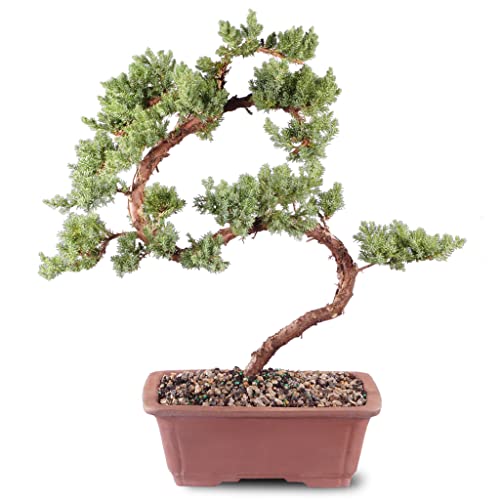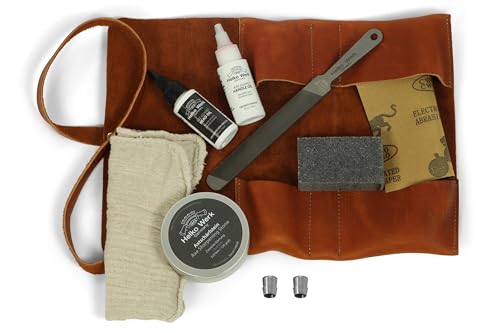


Bonsai trees are a type of miniature tree that are carefully cultivated to resemble the shape and style of full-size trees. They are highly sought after by collectors and enthusiasts alike, as they offer a unique and captivating addition to any indoor or outdoor space. However, the price of bonsai trees can vary greatly depending on several factors.
One of the main factors that contribute to the cost of a bonsai tree is its age and size. Older and larger trees are typically more expensive, as they have taken more time and effort to grow and shape. Additionally, the species of the tree can also impact its price, with rare or exotic species commanding a higher price tag.
Another factor that affects the cost of bonsai trees is the quality of the tree’s aesthetics. Trees that have been meticulously groomed and trained to enhance their natural beauty and symmetry are generally more expensive than those that are less refined. The quality and health of the tree’s foliage and roots also play a role in determining its value.
Furthermore, the reputation and skill of the bonsai artist who created the tree can significantly influence its price. Bonsai trees that have been crafted by renowned artists or those with a long-established reputation are often more valuable due to their artistic merit and the expertise involved in their creation.
In conclusion, the price of bonsai trees can vary widely depending on factors such as age, size, species, aesthetics, and the reputation of the artist. Whether you are a seasoned collector or a curious beginner, investing in a bonsai tree can be a rewarding experience that brings beauty, tranquility, and a sense of connection with nature to your home or garden.
What is the price range for bonsai trees?
Bonsai trees can vary in price depending on several factors, including the species, age, size, and style of the tree. The prices can range anywhere from $20 to several thousand dollars.
For beginners or smaller varieties of bonsai trees, you can typically find them at lower price points, starting at around $20. These trees are usually younger and less established, but they still provide a great starting point for those new to bonsai. They may come in basic containers or pots.
As bonsai trees mature and become more established, their price can increase significantly. High-quality and well-maintained bonsai trees can cost hundreds or even thousands of dollars. These trees are often older and have been carefully shaped and styled over several years to achieve the desired aesthetic.
The price of a bonsai tree can also be influenced by its species. Some species are more rare or difficult to grow, which can drive up their price. Additionally, certain styles of bonsai trees, such as cascading or multi-trunk, may be more sought after and therefore more expensive.
When purchasing a bonsai tree, it is important to consider not only the price but also the overall health and condition of the tree. Look for trees that have well-developed root systems and healthy foliage. It may be worth investing in a higher-priced tree that has been well-cared for, as it will likely have a better chance of thriving in your care.
In conclusion, the price range for bonsai trees can vary greatly depending on factors such as species, age, size, and style. From affordable beginner trees to high-end masterpieces, there is a bonsai tree available for every budget and level of expertise.
Factors that determine the cost of bonsai trees
When it comes to purchasing a bonsai tree, there are several factors that can influence its price. Bonsai trees can vary greatly in price, depending on factors such as:
1. Age
The age of a bonsai tree is one of the most significant factors that determine its cost. Older bonsai trees are often more expensive because they are considered more valuable. The older the tree, the longer it has taken to shape and train it into its current form. It takes years, sometimes even decades, for a bonsai tree to reach a mature and aesthetically pleasing appearance.
2. Species
The species of the bonsai tree also plays a role in its price. Certain species are more popular and sought after, which drives up their cost. For example, rare or exotic species like Japanese maple or California juniper can be significantly more expensive than more common varieties.
3. Size
The size of the bonsai tree is another factor that affects its price. Larger bonsai trees tend to be more expensive because they require more time and effort to maintain and shape. The size also affects the visual impact of the tree, with larger trees often being more visually striking and commanding.
4. Quality
The overall quality of the bonsai tree, including its health, symmetry, and balance, can also influence its price. Bonsai trees that exhibit exceptional qualities and craftsmanship are usually priced higher than those with flaws or imperfections.
5. Pot and display accessories
The pot and display accessories that accompany the bonsai tree can also add to its cost. Bonsai trees that come with high-quality, handcrafted pots or unique display stands may be priced higher due to the additional craftsmanship and materials involved.
It’s important to note that while these factors can give you an idea of the potential cost of a bonsai tree, prices can vary greatly depending on the seller, location, and market demand. It’s always recommended to do thorough research and consult with experts before making a purchase.
Popular varieties of bonsai and their average prices
Bonsai trees are known for their exquisite beauty and precise craftsmanship. Here are some popular varieties of bonsai and their average prices:
1. Japanese Maple (Acer palmatum)
The Japanese Maple bonsai is a favorite among bonsai enthusiasts. With its vibrant autumn foliage and delicate branches, it adds a touch of elegance to any space. Prices for Japanese Maple bonsai vary depending on the size and age of the tree, ranging from around $50 for a young sapling to several hundred dollars for a mature specimen.
2. Juniper (Juniperus spp.)
Juniper bonsai trees are popular for their unique foliage and natural, weathered appearance. These hardy trees can endure a wide range of environmental conditions, making them a popular choice for beginners. Prices for Juniper bonsai start at around $30 for a small tree and can go up to $200 for a larger, more established specimen.
3. Chinese Elm (Ulmus parvifolia)
The Chinese Elm bonsai is admired for its graceful, cascading branches and small, serrated leaves. It is a durable and adaptable tree that can thrive both indoors and outdoors. Prices for Chinese Elm bonsai range from $40 for a young tree to $300 or more for an older, well-trained specimen.
These are just a few examples of popular bonsai varieties, and their prices may vary depending on factors such as size, age, and overall quality. Bonsai enthusiasts and collectors often invest a lot of time and effort into cultivating these miniature trees, making them highly sought after in the market.
Where to buy bonsai trees and how to find the best deals?
If you are interested in buying bonsai trees, there are several options available to you. Here are some places where you can find bonsai trees and tips on how to find the best deals:
Local Nurseries and Garden Centers
One of the best places to find bonsai trees is at your local nurseries and garden centers. They often have a variety of bonsai trees for sale, and you can personally inspect the trees before making a purchase. Additionally, the staff at these stores can provide you with expert advice on caring for your bonsai.
Online Bonsai Retailers
Another option is to buy bonsai trees from online retailers. There are many specialized bonsai websites that offer a wide selection of trees to choose from. When shopping online, make sure to read customer reviews and check the seller’s reputation to ensure you are getting a good quality tree.
Bonsai Shows and Exhibitions
Attending bonsai shows and exhibitions is a great way to find and buy bonsai trees. These events often have vendors selling bonsai trees, and you can see a variety of trees on display. You can also interact with bonsai enthusiasts and experts who can guide you in choosing the right tree.
Bonsai Clubs and Associations
Joining a local bonsai club or association can connect you with other bonsai enthusiasts and experts who may be willing to sell or trade their bonsai trees. These groups often have regular meetings and events where you can find bonsai trees for sale.
Important Tips for Finding the Best Deals:
- Compare prices: To find the best deals, compare prices from different sellers and platforms.
- Consider buying pre-bonsai trees: Pre-bonsai trees are younger trees that haven’t been shaped yet. They can be less expensive than fully developed bonsai trees, and you can shape them according to your preferences.
- Timing is important: Look out for sales and discounts, especially during the offseason when demand is lower.
- Check for quality: Ensure that the bonsai tree you are buying is healthy, and inspect the roots, branches, and leaves for any signs of damage or disease.
- Ask for advice: Don’t hesitate to seek guidance from experts or experienced bonsai enthusiasts before making a purchase.
By exploring these options and following these tips, you can find and buy bonsai trees at reasonable prices while ensuring their quality and health.






